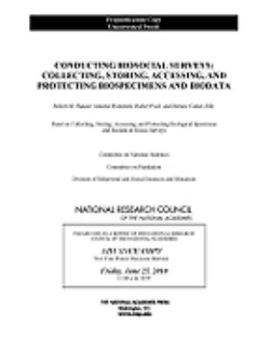Conducting Biosocial Surveys: Collecting, Storing, Accessing, and Protecting Biospecimens and Biodata
Recent years have seen a growing tendency for social scientists to collect biological specimens such as blood, urine, and saliva as part of large-scale household surveys. By combining biological and social data, scientists are opening up new fields of inquiry and are able for the first time to address many new questions and connections. But including biospecimens in social surveys also adds a great deal of complexity and cost to the investigator's...
Format:Paperback
Language:English
ISBN:0309157064
ISBN13:9780309157063
Release Date:October 2010
Publisher:National Academies Press
Length:124 Pages
Customer Reviews
0 rating





